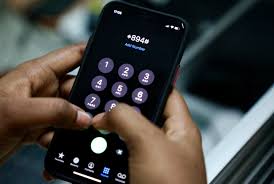Confusion has trailed the planned migration to end-user billing for Unstructured Supplementary Service Data (USSD) as telecommunications operators in Nigeria have faulted the claims by some Deposit Money Banks (DMBs) that charges for USSD services will now be deducted directly from customers’ airtime starting June 3, 2025.
The disagreement between banks and telecom operators surfaced after several banks — including First City Monument Bank (FCMB) and Stanbic IBTC — sent out email messages to their customers, claiming that, in line with a directive from the Nigerian Communications Commission (NCC), USSD charges will no longer be deducted from bank accounts but from customers’ mobile airtime balance.
According to the banks, each USSD session will now cost ₦6.98 per 120 seconds, and customers would receive a prompt to approve the deduction before it is charged.
But the Association of Licensed Telecom Operators of Nigeria (ALTON), through its Chairman, Gbenga Adebayo, has refuted these claims. Speaking to reporters, Adebayo said that no final agreement has been reached between the telcos, the banks, and the NCC on the end-user billing structure.
He explained that while there had been talks regarding the debt settlement and transitioning to a new billing model, the final steps, such as agreeing on a Service Level Agreement (SLA), have not been concluded.
His words: “The announcement by banks that they are migrating customers to the End-User Billing (EUB) model is premature and misleading. As of today, there is no signed agreement between us and the banks or any regulatory go-ahead from the NCC to implement this.”
Adebayo explained that a ₦160 billion debt had been at the centre of the USSD dispute between the banks and telecoms operators, dating back several years. He said one of the resolutions reached earlier was that banks owing telcos should first settle their outstanding debts under the old system, before any migration to the new model could happen.
He also warned that banks unilaterally pushing the new billing regime without concluding terms of engagement risk losing access to USSD services entirely.
“If the banks go ahead without signing protocols with us and fail to settle their debts, we will apply to the regulators for permission to disconnect them from USSD platforms,” Adebayo said.
He added: “We need to be clear on how billing will happen — there must be no double charging, no billing for incomplete sessions, and no cases where both airtime and bank accounts are charged at the same time. Until these service protocols are agreed upon and signed off with all parties, the status quo remains.”
The NCC had reportedly backed the introduction of End-User Billing as a long-term solution to settle disputes over payment responsibility between telcos and banks. However, according to ALTON, the regulatory body has not yet issued a directive authorising banks to begin deductions from customers’ airtime.
As the confusion deepens, subscribers are caught in the middle, unsure of whether airtime or bank accounts will be used for USSD transactions going forward.
Meanwhile, some banks continue to send messages encouraging customers to shift to alternative banking platforms such as ATMs, mobile apps, and internet banking, should they prefer to avoid USSD charges altogether.
Industry experts have warned that unless all stakeholders align and communicate a clear and unified billing process, users may face multiple deductions, service disruptions, and reduced trust in digital financial platforms.
